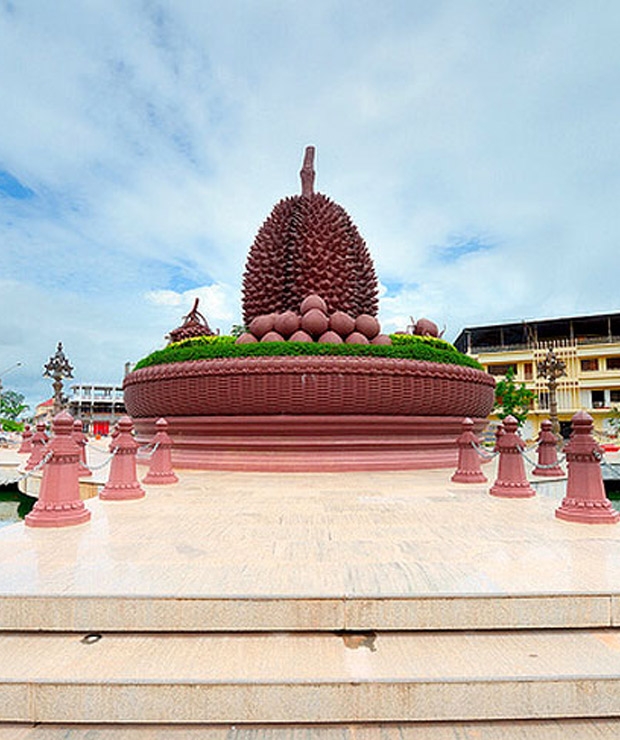Pepper Plantations
Kampot and Kep have been internationally renowned for more than a century as growers of some of the highest quality pepper in the world, with its distinct flavor and pungency, intense but light taste with fresh lingering aromas it has long been a prized ingredient in the finest French kitchens as well as in local cuisine such as Pepper Crab.
Most full day countryside tours out of kampot and Kep include a stop at atleast one pepper plantation. There are a few different farms in the area with a couple not far from the road to Kep. At the plantations, you can see the different growing methods and types of pepper, and there is usually a shop where you can buy Kampot pepper straight from the source.
At the beginning of the 20th century, Cambodian plantations were in full operation and the country was exporting more than 8000 tons of pepper annually. By 1960, there were more than 1 million pepper poles in Kampot. But the wars of the late 20th century put an end to production for almost 30 years. Production was renewed in the late 1990s. Pepper plantations once again dot the province.
Cambodian pepper generally comes in four varieties - green, black, red and white - all from the same plant but differing in ripeness and preparation. Green pepper is harvested young and usually used fresh in cooking. The classic black pepper is allowed to ripen dark green, harvested, dried and ground. perfect for table use. Red pepper is prepared the same as black but allowed to over-ripen before harvest. Finally, white pepper is red pepper that has had the outer shell removed which is often used in blends.
- Kep
Overview
Kampot and Kep have been internationally renowned for more than a century as growers of some of the highest quality pepper in the world, with its distinct flavor and pungency, intense but light taste with fresh lingering aromas it has long been a prized ingredient in the finest French kitchens as well as in local cuisine such as Pepper Crab.
Most full day countryside tours out of kampot and Kep include a stop at atleast one pepper plantation. There are a few different farms in the area with a couple not far from the road to Kep. At the plantations, you can see the different growing methods and types of pepper, and there is usually a shop where you can buy Kampot pepper straight from the source.




.jpg)





